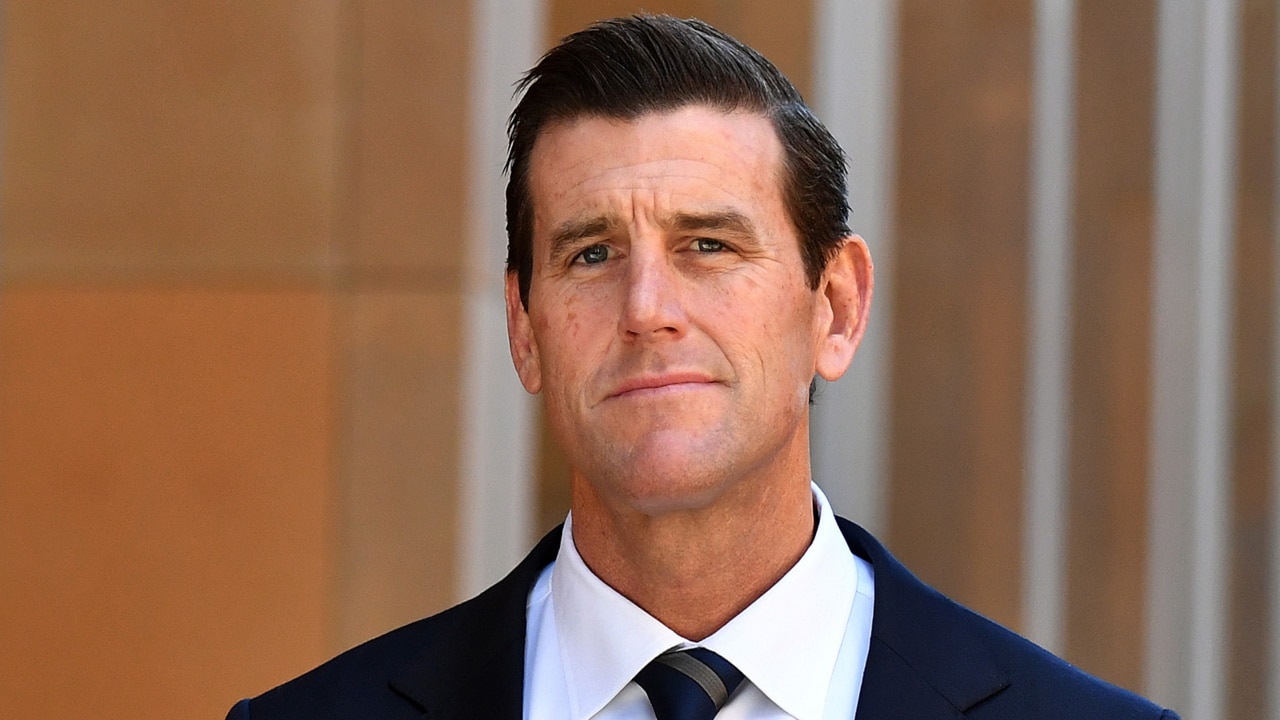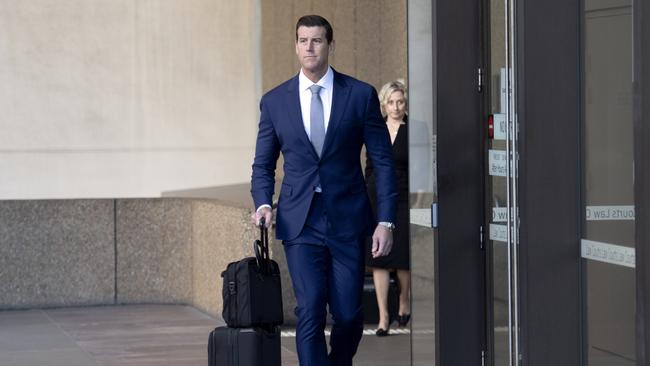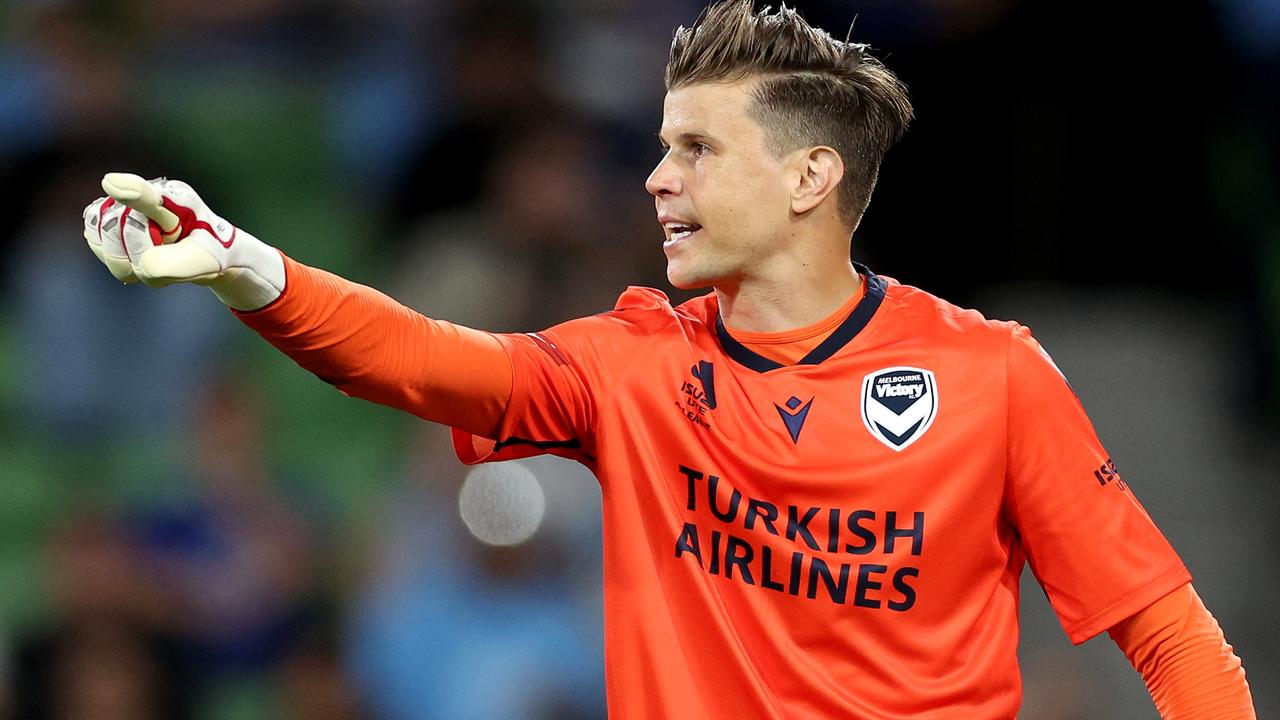Financial, legal backers of Ben Roberts-Smith slam Nine’s ‘fishing expedition’
Lawyers representing the financial backers of Ben Roberts-Smith, including media mogul Kerry Stokes, have slammed a ‘fishing expedition’ by Nine Newspapers.

Lawyers and financial backers who assisted Ben Roberts-Smith in his multimillion-dollar defamation trial have accused Nine Newspapers of going on a “fishing expedition” as the dispute over who will pay costs of the mammoth proceeding continues.
Earlier this year, Federal Court Justice Anthony Besanko ruled some of the imputations against Mr Roberts-Smith put forward across six articles by The Sydney Morning Herald, The Age and The Canberra Times were substantially true and dismissed the case.
The newspapers had accused Mr Roberts-Smith of war crimes, with the case expecting to have cost more than $25m in legal fees.
The trial was funded at first by the Seven Network before a loan agreement was reached with Kerry Stokes’ private company Australian Capital Equity (ACE).
Documents tendered to the court revealed ACE asked for an additional 15 per cent on top of the loan repayment if Mr Roberts-Smith won the case.
A third-party order for costs was made by Nine Newspapers following the judgment, with the application seeking costs from the Seven Network, its owner billionaire media mogul Kerry Stokes and his private company Australian Capital Equity (ACE).
Subpoenas were then issued to Seven and its commercial director Bruce McWilliam, Mr Stokes, ACE and both law firms Herbert Smith Freehills and Mark O’Brien Legal.

Neil Young KC, who represented the Seven and ACE respondents, told the court on Thursday Nine was conducting a “fishing expedition in the nature of discovery” as their subpoenas sought more information than they needed.
“The primary grounds for setting aside the further subpoenas set on my clients is that they are far too wide, they lack the necessary particularity … they have no legitimate forensic purpose,” Mr Young told the court.
“They are undertaking a trawling exercise in the nature of discovery.”
Mr Young accused Nine of casting a “drag net” in relation to the loan agreements between Seven and ACE, which have been “on foot for a very lengthy time”.
He said the subpoenas assume it is “enough to say speculatively it’s likely some documents on the cards will be relevant” but he is calling for them to specify the documents which are relevant.
“The argument run by the respondent to our application is unsound,” Mr Young said, referring to Nine.
Mr Young said Nine was seeking “any document” relating to the loans from Seven and ACE, which was “completely disconnected to any issue that arises” on the costs application.
He said the subpoenas require an “extensive searching exercise of anything referring or relating to proceedings” including eight people, which includes “every conceivable type of communication”.
“The terms of the subpoena and the attempt to justify the wide terms … justifies these subpoenas are illegitimate and objectionable… they should be struck down,” Mr Young argued.
Nicholas Owens SC, on behalf of Nine Newspapers, told the court his opponents were “overplaying” the burden involved in physically producing the documents, while seeking to “downplay” the documents themselves.
He told the court the involvement of Seven, ACE and its offices were critical in commencing the proceedings as Mr Roberts-Smith was “not in a position” to fund the case on his own.

“Seven wanted Mr Roberts-Smith to have access to lawyers he would not be otherwise able to afford,” Mr Owens said.
“They had a clear involvement in the decision to commence … and the calibre of the lawyers.”
He argued more than 8600 emails between Mr Roberts-Smith, his legal team and Mr McWilliam meant they did more than observe the case.
“I think the litigation went through just over 100 days, that seems to be an average of about 86 emails a day,” Mr Owens said.
“We say that provides a very strong presumption … there is something more than mere observation going on.”
Mr Owens said everything Seven and ACE were doing was to achieve a successful outcome: “They thought they were a meaningful ingredient to achieve a victory”.
But Mr Young slammed the proposal by Mr Owens to have the application set aside, saying it is implied his clients “can’t be trusted to determine whether a communication relates to a direction in respect to the proceedings”.
“There’s no foundation for that kind of assertion,” he said.
“They much prefer to trawl everything and make the judgment themselves.”
Justice Besanko said he will hand down his decision either on Friday or Monday.
Mr Roberts-Smith was earlier this year found to be an inconsistent witness with “motives to lie” in the scathing assessment by Justice Besanko, who dismissed the proceedings.
The disgraced soldier has since appealed, with the appeal aimed at finding error in Justice Besanko’s factual findings and is expected to cost about $1m, on top of the $25m already spent in legal fees throughout the case.
Mr Roberts-Smith’s lawyers argue Justice Besanko “erred in his findings” Mr Roberts-Smith was involved in four murders of unarmed prisoners in Afghanistan between 2009 and 2012.
A two-day hearing for the costs application against Mr Roberts-Smith, Seven and ACE has been set down for September 4.



